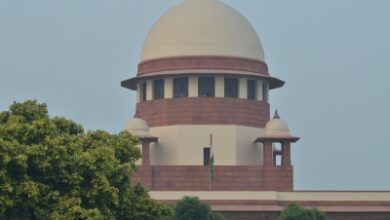Pakistan’s ISI backing drug networks, threatening South Asian stability: Report

Islamabad, Nov 15 (IANS) Pakistan’s Inter-Services Intelligence (ISI), long accused of backing drug-trafficking networks across South Asia to fund covert operations, could trigger catastrophic consequences for regional stability if these networks expand into Bangladesh, a report said on Saturday.
It added that if Bangladesh were to quietly develop into a production hub similar to Pakistan’s Balochistan province, it would endanger not just Dhaka’s internal stability but also the broader security framework of the entire subcontinent.
According to the report in Eurasia Review, Pakistan’s Chairman of the Joint Chiefs of Staff Committee General Sahir Shamshad Mirza recently visited Dhaka, while customs officials at Chittagong port seized 25 tons of poppy seeds from two containers that had arrived from Pakistan on October 22. Falsely declared as bird feed, the consignment concealed a large-scale import of a banned substance.
“This was no ordinary smuggling attempt or casual violation of trade regulations. When placed against the backdrop of Pakistan’s growing involvement – the recent frequent visits of military personnel and activity of militant-linked preachers in Bangladesh, the incident assumes far deeper significance. It raises a troubling question: is Bangladesh gradually turning into Pakistan’s new strategic playground?”, the report detailed.
The report highlighted that months after assuming power in Bangladesh last year, the Muhammad Yunus-led interim government abolished the mandatory 100 per cent physical inspection of goods imported from Pakistan under the guise of ease of doing business.
It said this hasty decision raises questions about possible collusion within customs or port authorities. The nexus of political sympathy and shared ideology between Jamaat and Pakistan is neither recent nor hidden.
“Meanwhile, the frequency of Pakistani delegations visiting Bangladesh over the past year tells its own story. Several of these visits were conducted under official pretexts but involved meetings with Jamaat leadership, including private audiences at the home of the party’s Ameer. Pakistan’s High Commissioner in Dhaka has held multiple rounds of “courtesy meetings” with Jamaat leaders, suggesting a relationship that goes beyond normal diplomacy,” the report stressed.
“More strikingly, under Yunus regime, both countries reached an agreement to allow visa-free entry for holders of diplomatic and official passports, a move that, on the surface, appears generous but many cast doubts hinting at deeper strategic interests, given Pakistan’s dark past including sponsoring terrorism in Bangladesh in the past,” it added.
The report stated that poppy seed shipment, the spread of radical preachers in border districts, the subtle revival of Jamaat’s influence and Pakistan’s renewed diplomatic activism are not isolated developments; they reveal a larger coordinated design.
“Bangladesh risks becoming an extension of Pakistan’s regional strategy: destabilise India’s eastern flank, fund extremism through narcotics, and resurrect the ghost of religious nationalism under a new guise,” it noted.
–IANS
scor/as





